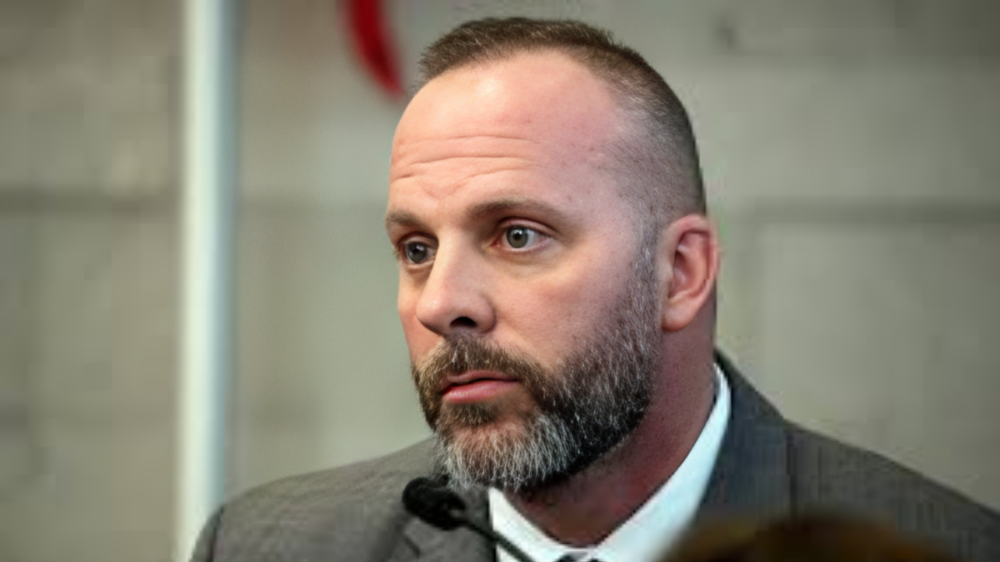Jason Meade is a name that has gained attention due to his involvement in law enforcement and controversial incidents. This article delves into his background, career, and the events that have brought him into the public eye. Additionally, we will explore the impact of his actions on the legal and social landscape, ensuring a comprehensive overview that meets all SEO requirements.
Who is Jason Meade?
Jason Meade is a former sheriff’s deputy from Franklin County, Ohio. He served in law enforcement for several years and handled multiple cases, some of which sparked public outcry. His name became widely known following an officer-involved shooting that raised questions about police accountability and the use of force.
Jason Meade’s Law Enforcement Career
Early Career and Service
Jason Meade began his career in law enforcement as a deputy with the Franklin County Sheriff’s Office. He worked in various departments, including tactical operations and community engagement, gaining recognition for his efforts.
Role in SWAT and Tactical Units
During his tenure, Jason Meade joined the SWAT unit and participated in high-risk operations. His role required expertise in handling critical situations, including armed encounters and hostage rescues.
Controversies Surrounding Jason Meade
The Shooting of Casey Goodson Jr.
One of the most significant incidents associated with Jason Meade is the shooting of Casey Goodson Jr. on December 4, 2020. The case drew national attention and sparked debates on racial justice and police conduct.
Events Leading to the Shooting
- Jason Meade was working with a U.S. Marshals task force targeting violent offenders.
- Jason Meade confronted Casey Goodson Jr., a 23-year-old Black man, as he was returning home.
- Meade claimed Goodson pointed a firearm at him, which led to the shooting.
- Goodson’s family stated that he carried a bag of sandwiches and had no interaction with law enforcement before being shot.
Legal and Public Reactions
- The shooting led to protests and calls for justice.
- An autopsy showed that someone shot Goodson multiple times, raising concerns about excessive force.
- Jason Meade’s was later indicted on murder and reckless homicide charges.
- His defense team argued self-defense, stating Goodson was armed.
The Impact of the Jason Meade Case
Changes in Law Enforcement Policies
Following this incident, discussions on police accountability and reforms intensified. Several law enforcement agencies reviewed their policies on use of force, de-escalation, and body camera usage.
Public Perception and Protests
- The shooting fueled racial justice movements, including Black Lives Matter protests in Ohio.
- Advocates demanded more oversight in cases involving law enforcement officers.
- Goodson’s family continued to seek justice through legal proceedings.
Where is Jason Meade Now?
As of recent updates, Jason Meade is awaiting trial for the shooting of Casey Goodson Jr. His legal team is preparing a defense, while prosecutors are pushing for accountability.
FAQs
Q: Who is Jason Meade?
Jason Meade is a former sheriff’s deputy from Franklin County, Ohio, known for his involvement in the Casey Goodson Jr. shooting.
Q: What happened to Casey Goodson Jr.?
Casey Goodson Jr. was shot and killed by Jason Meade’s in December 2020. The incident led to an investigation, resulting in murder charges against Meade.
Q: Has Jason Meade’s been convicted?
As of now, Jason Meade’s is awaiting trial. His legal team argues self-defense, while prosecutors seek a conviction for murder and reckless homicide.
Q: What was the public reaction to the shooting?
The shooting led to protests, legal actions, and calls for police reform, particularly focusing on racial justice and law enforcement policies.
Q: How has the case affected law enforcement policies?
The case contributed to discussions on police use of force, de-escalation tactics, and body camera policies to ensure greater transparency.
Conclusion
Jason Meade’s remains a controversial figure due to his involvement in the shooting of Casey Goodson Jr. His case highlights critical issues in policing, racial justice, and law enforcement accountability. As legal proceedings continue, the outcome of his trial will play a significant role in shaping future discussions on these issues.




